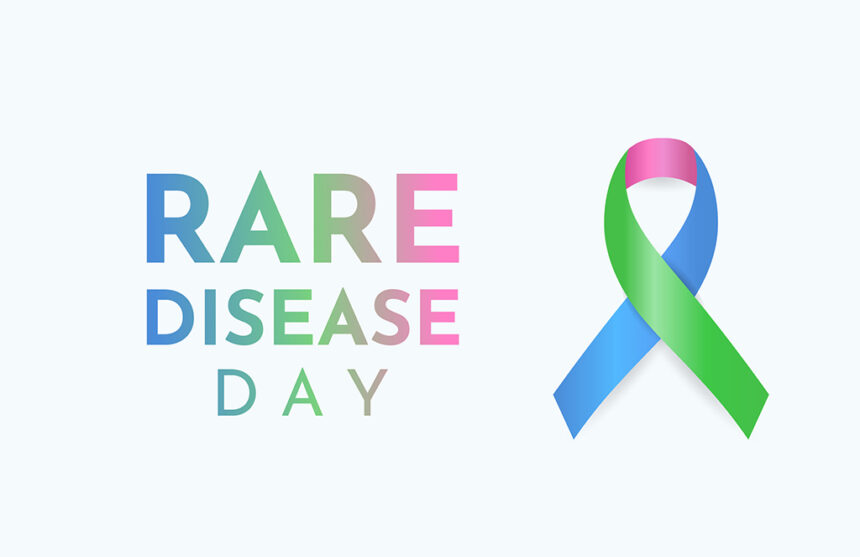Pharma brands, healthcare companies, hospitals and patients around the world rallied in support of Rare Disease Day.
All throughout Thursday, health organizations and patient advocates held events to raise awareness about the overlooked illnesses that impact millions of people worldwide.
Since Rare Disease Day officially launched in 2008, the annual celebration has aimed to build a large community worldwide of people who live with rare diseases — illnesses that affect fewer than one in 2,000 people. Some 300 million people across the world live with a rare disease.
Rare Disease Day falls on either February 28 or February 29 if it’s a leap year — because leap year days are the “rarest day of the year,” the website states.
This year, the organization launched a video that included submissions from patients near and far, from the U.S. and Europe to Argentina and India, who shared their stories about living with a rare disease.
“Rare Disease Day creates visibility and community, research and unity,” the video states. “Changing the world … to seek new treatments, improve healthcare, awareness, collaboration, equity and more inclusion — to create a better future for everybody.”
Plenty of other pharma companies, brands and patients hopped onto the trend, releasing videos, campaigns and press releases to honor Rare Disease Day — all in the hopes of raising awareness about much-needed research for the conditions.
Hearing from patients
For example, Rare Patient Voice, an organization that brings together rare disease patients and helps them share their voice with researchers and drug developers, released a video featuring president and founder Wes Michael as well as staffer Jessica Bolden, who lives with sickle cell disease.
“As someone with sickle cell, I’m highlighting that this is a painful disease that is in desperate need of groundbreaking research,” Bolden says in the video. “We can be hopeful for the future of sickle cell treatments being that more and more developments have been made.”
Europe-based pharma company Neuraxpharm Group, or Neuraxpharm, also released a statement, seeking to elevate awareness of X-linked adrenoleukodystrophy (X-ALD) and cerebral adrenoleukodystrophy (cALD).
X-ALD is a rare disease that affects the nervous system and the adrenal cortex, which is part of the adrenal gland. cALD is a disorder that affects the brain and results in neurological symptoms.
Neuraxpharm launched a video featuring Fanny Mochel, the director of the Reference Center for Leukodystrophies in Paris, who discussed the latest research on the disease and emphasized the need for new treatments.
Japanese biotech JCR Pharmaceuticals, meanwhile, noted in a statement that it supports the mission of Rare Disease Day and that it would continue to advocate for it in Japan.
“A rare, genetic disease is not a choice in lifestyle,” said Shin Ashida, chairman and president of JCR, in a statement. “Often, it is difficult to understand the challenges in daily living, anxiety, isolation, fears, anger or hope that individuals and their families undergo as they navigate their diagnostic journey, often with unfulfilled hopes in rare diseases due to no or limited treatment options.”
Ashida added that JCR was committed to exploring therapeutic options for both rare and ultra-rare diseases, “to ensure that no one is left behind.” Currently, JCR has some 17 rare disease candidates in its pipeline for several lysosomal storage disorders.
JCR also joined other companies and brands around the world who chose to “light up” for Rare Disease Day by lighting up its office with colors associated with the day — pink, green and blue.
Kyowa Kirin, another Japan-based biotech, released a video about participating in the Global Chain of Lights as well.
Takeda Pharmaceutical also announced it was launching I Am Number 12, a national campaign that features the stories of rare disease “changemakers” — all in the name of making rare diseases feel less “rare.”
Discovering and developing orphan drugs
Rare disease, whose treatments are often referred to as “orphan drugs,” is a market area that’s often difficult to crack.
Developing drugs for rare conditions may be economically less attractive than more common conditions, according to a recent report in The Lancet. As a result, decades-old federal policies like the Orphan Drugs Act have sought to foster the development and approval of orphan drugs in the U.S.
“2024 Rare Disease Day is marked by both advances and persistent challenges,” the authors of the report noted. But they emphasized that “urgent attention” is needed to prioritize early diagnosis as well as new policies and funding that would support R&D.
“A collective approach involving integration of rare diseases into the healthcare system, inclusion of mental health considerations in rare disease services, and increased awareness efforts will be essential for fostering programs and addressing the unmet needs of those affected by rare diseases,” they added.
Last year, the Food and Drug Administration (FDA) announced it would implement lessons learned from its COVID-era initiative, Operation Warp Speed, into a new pilot program that aims to accelerate research in rare disease.
The program, START, focuses on addressing some of the challenges associated with rare disease development and filling unmet needs.
For an April 2024 article on Alexion Pharmaceuticals spotlighting rare disease NMOSD in a short film, click here.








